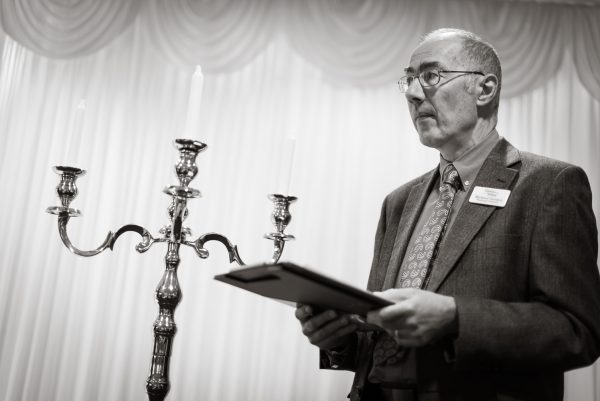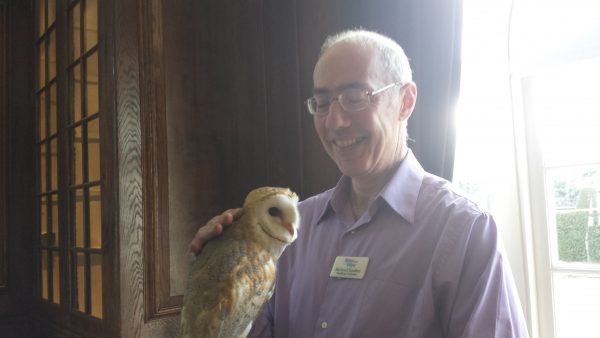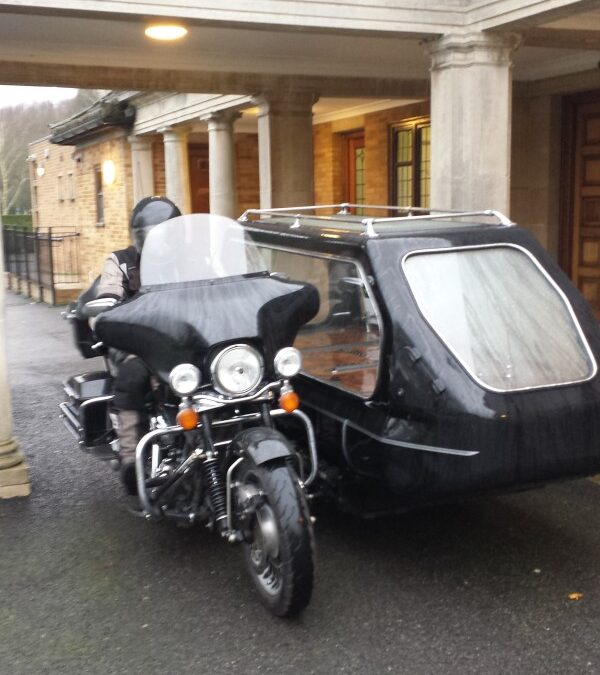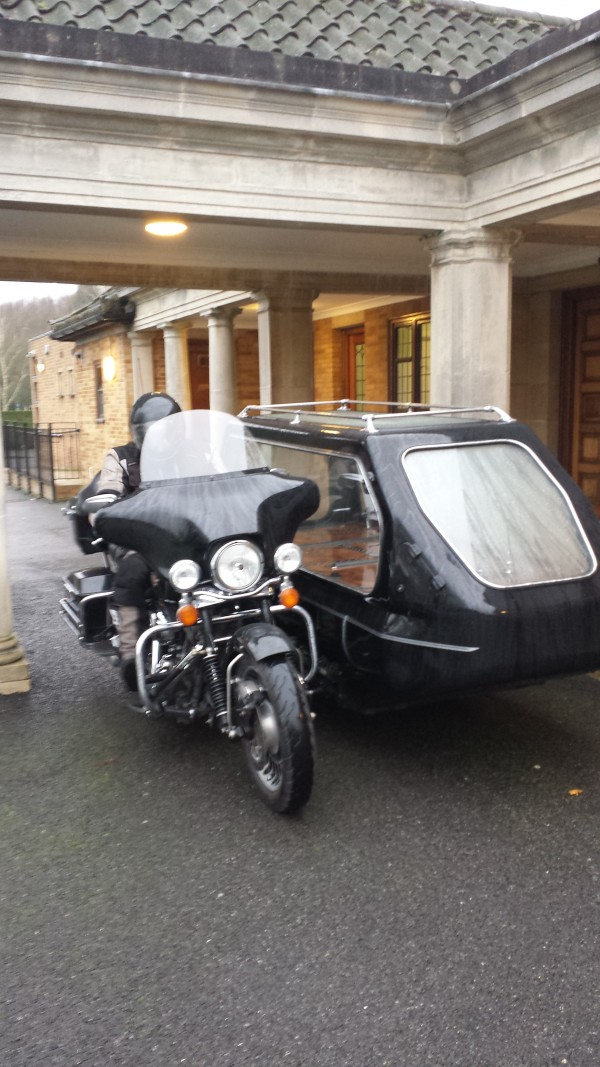
by Michael | Aug 9, 2017 | Blog
A Civil Celebrant rarely experiences monotony or predictability. There’s no certainty where the next piece of work is coming from. There’s no knowing what the client may demand!
I thought it might be of interest to you, my readers, to give you an idea what I was up a week or so ago. (I was going to aim at “a typical week”, but actually there’s no such thing!)
It looked like it was going to be a relatively quiet week.
Monday kicked off with a visit to St Pancras to see my son off on a continental holiday. (An advantage of being self-employed!) Then back to desk-work to confront a number of admin jobs I have been putting off!). However, the phone rang twice, and I found myself booked for two funerals next week.
I went to see the first client on Tuesday. She was a lovely elderly lady, who had lost her husband, and she was most helpful. However, unusually, she was not on the internet, so I would have to come back the next day to drop off my draft service.
I also had a lengthy call with a couple in Bournemouth (they were cousins of the deceased, and virtual next-of-kin).
For the rest of the day, I was composing funeral services!
On Wednesday, I sent out notes to clients: one was a reminder for a couple getting married in two weeks, but who hadn’t yet commented on my draft ceremony! Another was some final information concerning Sunday’s wedding.
After breakfast networking, I composed the third funeral (Bournemouth) and sent that off. I also responded to a wedding enquiry.
On Thursday, I was booked to speak at a breakfast networking meeting some 50 miles away. This meant a 6.00 a.m. departure, but it was worthwhile, as the talk went down very well and I got a couple of potential enquiries.
I came back around noon, and had to liaise with a Funeral Director about one of the funerals, which was proving slightly complicated logistically.
After a scheduled visit to the dentist, it was time to do an hour’s social media work, followed by a blog.
On Friday, it was time to follow up on the contacts I had made the previous day. Next, a 1-2-1 call with somebody I had met networking. A visit to a couple of Funeral Directors was on the agenda too. Finally, a call from a bride to discuss details about her wedding in a week or so. One other thing: down to Paddington to collect my son!
Saturday was a day off, and Sunday afternoon a wedding to conduct.
Do you see what I mean about no monotony or predictability?!

by Michael | Apr 18, 2017 | Blog
The time may come when you want to commemorate a big event in your life (or in that of someone close to you). You will probably be marking a milestone birthday or anniversary, wedding, naming, or even a funeral. It’s going to be very important to you that the event is conducted appropriately. In fact, it’s got to be perfect.
And why wouldn’t it be?
Obstacles
Here’s why. Any one of these reasons (plus others) may get in the way:
- Somebody insists that everything is done their way only
- Money concerns
- Differences of opinions about the amount of religious elements to be included
- The relevant people can’t agree on the size of the gathering
- Or the venue
- Or what rituals, if any, are to be included
- Or who participates in the ceremony
- The date
And so it goes on!
Solutions
In most cases, give and take may be necessary.
If you feel somebody is trying to hi-jack the arrangements, try and have a talk with them. Explain that others are involved too and would like to participate as well. You’re grateful for what they are doing, but it would be appreciated if the load were shared around a bit. Not everyone will listen to reason, I know, but many people will (if approached the right way).
If money is the issue, there are ways round it. These can range from a reduced guest list or choosing a different venue to arranging your function out of season and, even, in the morning or early afternoon. You may also be able to use your bargaining powers to knock suppliers’ prices down a bit.
If religion is causing problems, you might be able to suggest a secular ceremony with various religious elements included. This could keep everybody reasonably happy.
As for the rituals (if any) and involvement of family and/or friends, you will need someone to co-ordinate the ceremony. This is where a civil celebrant can come in.

Help is at Hand
Your civil celebrant will work together with you by offering ideas and guidance. He can suggest options and, if you explain where you need help, will be delighted to point a way forward.
Although he may not be ordained, he will be able to offer the religious elements, if that’s what you want. He will be happy to include whoever you want to be involved, and offer you some wonderful and apt readings.
Every word of the ceremony that you eventually put together will be agreed by you. There’ll be no unpleasant surprises on the day!
It may take a little ability to compromise, but that end goal of a perfect ceremony will still be accessible. It will be so worth the effort!

by Michael | Dec 5, 2016 | Blog
The “Funeral Service Times” carried an article about SunLife’s 2016 “Cost of Dying” report. It emerged that funeral costs rose by 5.5% over the year. Apparently, the average cost of a funeral came to £3,897. However, if you factor in probate, flowers and a headstone, that sum rose to £8,802 per person.
It was even worse if you live in London. On average, a funeral here costs £5,529.
The best place to save some money is Northern Ireland! The average cost there was “only” £3,277.
Some 1,500 people were surveyed between April and May 2016. Many of these voiced their concerns at the outlay. Some 13% of those who had organised a funeral in the last four years said the expense had hit them hard. Of those people, 10% had had to sell belongings to finance the funeral, and 24% had deferred the payment by using a credit card.

Insure yourself
Many Funeral Directors offer a funeral plan. Simply expressed, you can pay for your funeral in your lifetime, and this will prove a good investment (unless you die before the costs have had time to rise!). They’ll be happy to talk to you about this.
Take control
An incredible 1% of those who had organised a funeral in the last four years said they were fully aware of the deceased’s wishes. 59% knew (at least) whether cremation or burial was the deceased’s preference. 37% knew which funeral director had been chosen. 22% had no idea what the deceased might have wanted at all.
Death is one of life’s few certainties, but it is remarkable how little we Brits discuss it. We feel uneasy talking about it, let alone, planning for it.
As a result, as we have seen, there can be financial issues when a loved one dies. More than that (judging by the above statistics), 99% of us have to make decisions about a loved one’s funeral without knowing if that is what the deceased would have wanted.
According to 95% of those who had to organise a funeral, knowing the preferences of the deceased made things much easier. However, almost of third of these have done nothing about their own end-of-life plans.
A solution
Many celebrants offer the possibility to write a personalised funeral during your lifetime. They will normally come to your home, talk over the various choices open to you, question you (in order to draw up a eulogy), give you a quote and then, if you accept, send you a draft ceremony for you to approve. (They can also conduct the ceremony on the day – availability allowing – if that is what you instruct.)
Note that there is no legal compulsion for your instructions to be followed. What you can do is to make sure your next-of-kin know your feelings (and can locate the service that has been written) – and it’s a good idea to discuss your feelings and intentions with them first. For example, if you opt for a green burial, you may not realise that there will be no memorial of any kind for them to visit.
If you do want to take control and also help your next-of-kin, have a word with a funeral celebrant. With good advice, he can put your mind at rest.
by Michael | Oct 3, 2016 | Blog
Things do go wrong. Even at weddings. Even when you’ve done everything possible It’s just the nature of the thing. Everything may not run smoothly. S**t happens, as they say.
So what can you do about it?
When something goes wrong (through negligence), you may want to sue. I’m a civil celebrant, and not competent to comment in this area, so I’ll leave it to you to consult an expert, if you can’t resolve your issue amicably.
Of course, prevention is the best cure. If you start your planning early, and are diligent in your choices, you reduce the chances of catastrophe considerably.
The areas most likely to cause problems are:
Dresses; videos; photos; venues; flowers; rings; cars; make-up; catering; suits.
Suppliers
When choosing your suppliers, it pays to go by recommendation. However, this is not always available. You can look and see if there are complaints against your supplier. Search their name plus “complaints” on Google and see what comes up. It might be instructive.
Their fan page on Facebook may also tell you something. As may Twitter.
Otherwise, a meeting may help to reassure you (sometimes gut feelings are very helpful). Ask plenty of questions and watch out for any answers that don’t feel right.
Questions
When dealing with your suppliers, make sure you ask them:
- if they can guarantee delivery of your product on the desired day and time (or in a reasonable time-frame)
- if they can guarantee the product will be fit for its agreed use
- what back-up arrangements are there (and what are their terms for refunds?)
- what their full contact numbers are (e-mail, phone and emergency phone), especially for the big day
- what the payment and delivery terms actually are
It is wise to check terms and conditions before you pay the deposit. Go through these carefully (or get a well-disposed and intelligent friend to do this for you!).
Your Civil Celebrant
Although many UK Civil Celebrants may belong to an association that regulates their conduct (such as the Association of Independent Celebrants or the UK Society of Celebrants), there is currently no obligation to do so. In exceptional cases, they may not even have been trained (properly).
If you can’t get first-hand referrals or locate independent reviews, have a look at their website. There may be video evidence of their competence. Social media may help you get a picture of them. A face-to-face chat, a Skype conversation or, failing that, a phone call is a wonderful idea, because you will then get a feel for their personality. You need to trust your celebrant and have the sense that you will get on well with them.
As a civil celebrant, I believe in working professionally throughout (and with humour, when appropriate!).
Once I receive a deposit (usually £100) and your signed booking form, your date is secure and I start work shortly after. I always consult you, so that your needs are understood and met.
I aim to respond in reasonable time to enquiries etc., deal appropriately with any complaints – which I hope will never happen! – and work efficiently and effectively so that any ceremony I prepare meets (or exceeds) my client’s expectations. I aim to arrive on the day an hour before the scheduled start time, and promise to conduct any ceremony to the best of my ability.
Your side of the bargain
You have responsibilities to the supplier too.
- Make sure you pay your deposit and/or balance on time
- Respond to e-mails/calls in a timely manner
- Don’t leave it to the last minute to make demands or changes
- You have a share in ensuring that your relationship is a civil and pleasant one
If you are careful and start planning early, you can significantly reduce the risk of things going wrong – perhaps, not quite to zero, but very low. And you can also be pleased with yourself that you have done all that you can.
Good luck with it all!

by Michael | Sep 27, 2016 | Blog
Recently, I wrote about crucial decisions that affected wedding planning. I’d now like to look at life-or-death decisions.
By that I mean decisions relating to death.
It’s an understatement, but when someone dies, it can be an extremely difficult time for those left behind. Obviously, just as relationships differ, so will reactions. Many people will be experiencing emotions such as shock, anger, grief or confusion. It is at just such a time, when they’re at their lowest ebb, that they are expected to deal with the funeral (and, potentially, probate or a contested will, etc).
First Steps
In most cases, help is available. The GP or hospital doctor who signs the death certificate will normally direct you to your next port of call. This is often the Town Hall, where there is more paperwork waiting for you before the death can be registered.
Some Councils (have a look on Google) offer a package that covers everything in one place, and that can make things much easier.
Funeral Directors can normally give advice and guidance.
Funeral
Registering the death is a legal obligation. A lot of people may be surprised to learn that a funeral is not.
Most people will choose to have a funeral. This may be through choice,or because it’s ‘the done thing’. It may well be in order to achieve closure via a ceremony. You can actually – subject to certain legal regulations – bury your loved one in your garden, if you so choose. The point is that you don’t need to have anything done beyond disposing lawfully of the body. This may certainly save on Funeral Director fees, which can be really quite high.
Questions
Nonetheless, most will go with a funeral. Of course, you have to decide on a burial (standard or woodland?) or a cremation. The deceased may have left instructions. You may have strong feelings.
How big and grand do you want the funeral to be? What about the wake?

Fully, partly or not religious?
Another fallacy is that the funeral has to be fully religious. Or else, humanist.
What if the deceased totally rejected religion? What if the surviving family does? What if the deceased was agnostic? What if the family is of mixed religious faiths? In such cases, there is real scope for a civil celebrant.
A civil celebrant will visit the family and discuss the possibilities. They will be able to advise and offer suggestions. They will usually aim to make the service a celebration of life (although it will probably include serious and affecting readings and moments). The service will be tailored to your exact requirements and wishes.
Lots of issues to consider, but, as I’ve suggested, help is at hand.
I acknowledge that this article only scratches the surface of the life-or-death decisions, but I hope it raises questions that you may be glad you have faced.





